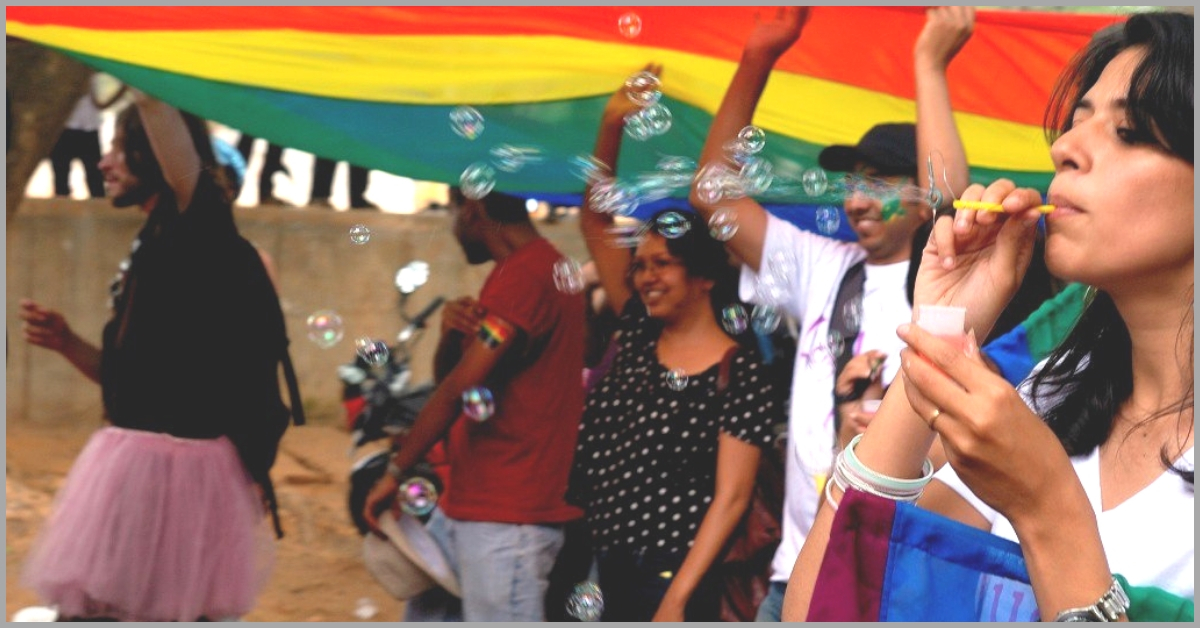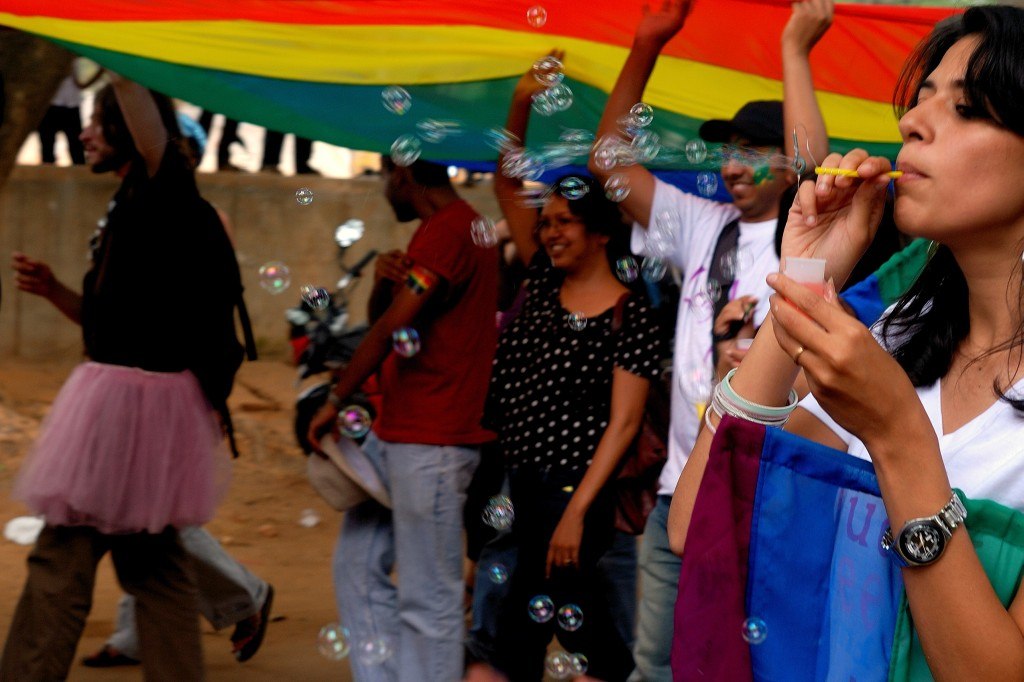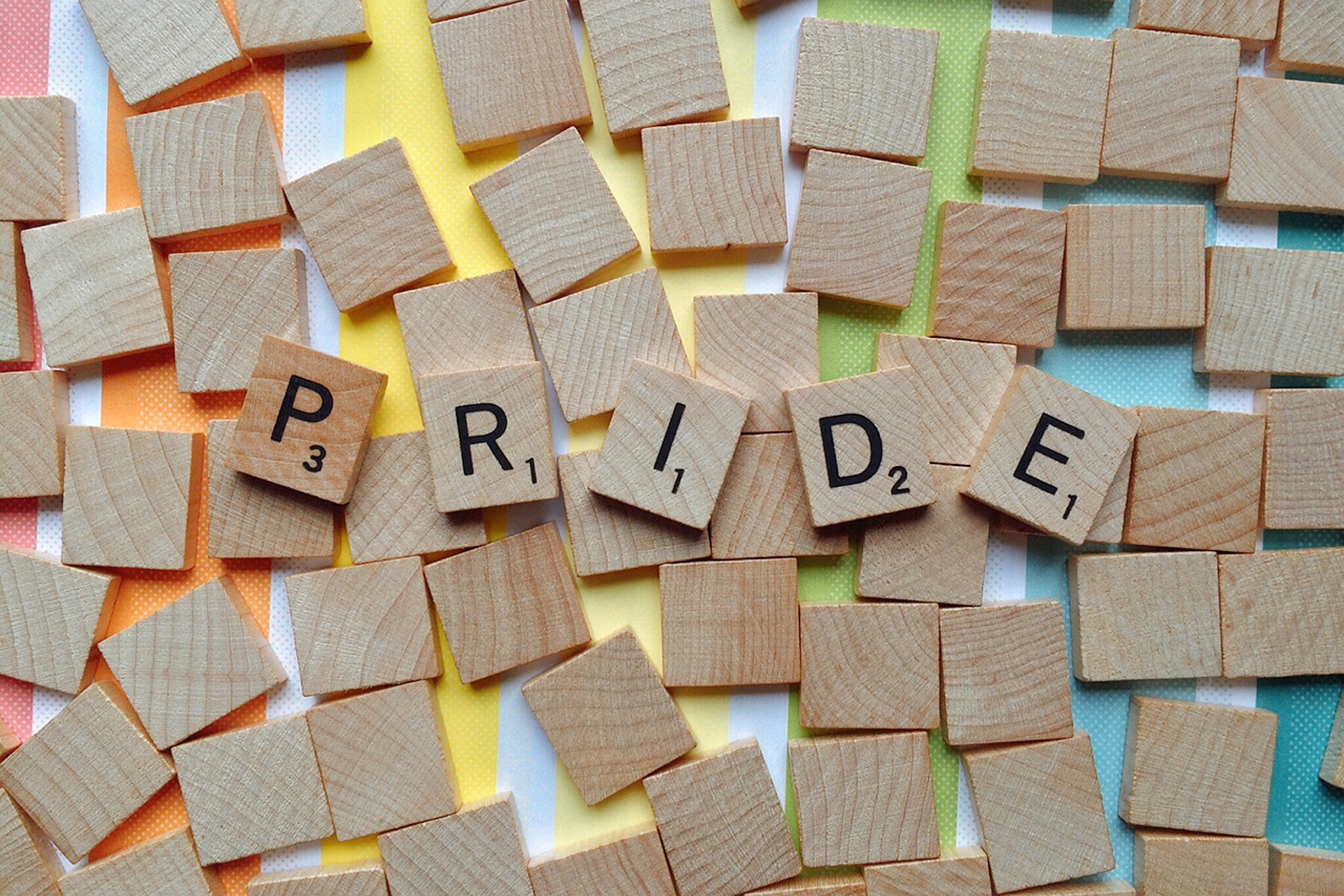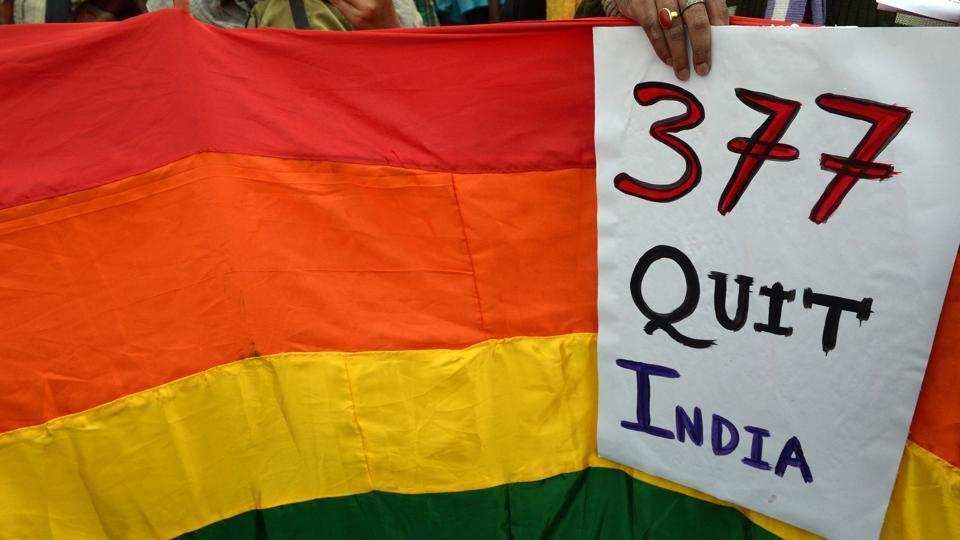‘I Am What I Am’: 5 Milestones That Led to The Historic Section 377 Judgement
The injustice meted out to the LGBTQ community and the roller coaster ride of this movement needs to be understood from the elongated slow march it has undertaken.

The great German thinker Goethe said, “I am what I am, so take me as I am”. The Hon’ble Supreme Court also reiterated the same in the recent landmark ruling which boosted individual rights not only in the world’s largest democracy but also across the globe.
This ground-breaking victory now buries another colonial-era legacy which existed in India since 1861 and acted as a constant fear and threat to the Lesbian, Gay, Bisexual, Transgender and Queer (LGBTQ) community. The same has also been hailed by the United Nations Secretary-General Antonio Guterres as he tweeted with pride the remarks in this judgement made by the highest court of India.
The injustice meted out to the LGBTQ community and the roller coaster ride of this movement needs to be understood from the elongated slow march it has undertaken.

Firstly, the British imperialists who had drafted Section 377 of the Indian Penal Code that existed in India until recently, had cleverly revoked their own laws against homosexuality almost around fifty years ago. The Section is modelled on the Buggery Act of 1533 which criminalised sexual activities “against the order of nature”, including homosexual activities.
Secondly, the law of unnatural offences in India has gone through many ups and downs, both at the hands of the judiciary and at the executive. This issue of Section 377 was raised for the first time by an NGO, Naaz Foundation, and AIDS Bhedbhav Virodhi Andolan (ABVA), in the Delhi High Court in 2001.
After around three years, the petition was dismissed by the Court and was reconsidered by the High Court when the Supreme Court directed it to do the same. Likewise, in 2009, the Delhi High Court ruled that the Section was violating the Fundamental Rights of the Constitution of India and decriminalised sex between consenting adults of the same gender.
Thirdly, in 2013, in the case of Suresh Kaushal, the Supreme Court overturned the judgement of the Delhi High Court and re-criminalised gay sex, going against the dignity of the community once again.
The basis for such a decision was to protect the conservative cultural values of the society. This decision again brought into limelight the continuous struggle of the community for their basic rights.

The LGBTQ community got a ray of hope in 2014 when the apex court directed the government to declare transgender as a ‘third gender’.
Also Read: SC Verdict on Section 377: Meet the Two Lead Petitioners Who Challenged The Status Quo
Fourthly, in the same year in September, India had also abstained from voting on a resolution against LGBT discrimination that was passed by the United Nations General Assembly (UNGA). Interestingly, in 2015, India was among the twelve nations to vote against the U.N. Secretary-General’s decision to extend marriage benefits to LGBT couples or same-sex couples.
Fifthly, in the K S Puttuswamy Case (2017), a nine-judge bench of the Supreme Court had upheld the Right to Privacy as a Fundamental Right under the Constitution and stated that the protection of sexual orientation is an essential attribute for one’s identity.
Finally, in 2018, in the case of Navtej Singh Johar and Others v. the Union of India, a three-member Supreme Court bench revisited the 2013 judgement, referred the same to a larger bench of five and overruled the decision of its own division bench.
This historic unanimous judgement not only pronounced that Section 377 should be read down insofar as it criminalised homosexual and transgender sex between consenting adults as unconstitutional but also sought an apology to the whole community.
The separate judgements by all the five judges are very poignant and what is more important is the message which was sent across—that the voices of the vulnerable will never go unheard even if it takes a while.
The historic ruling restored the belief in the principles of equality, liberty, freedom and inclusiveness of the Constitution and upheld the dignity of the LGBTQ community.

There is no easy walk to freedom anywhere, and once it is achieved, the society must protect and preserve the benefits of this long struggle. This victory of the LGBTQ community is a long-awaited one and likewise, confers a responsibility to each in the society to accept and protect their due rights. This responsibility comes in many forms for our health establishments, workplace environments, the society at large and more for the law enforcement agencies.
Primarily, a huge task lies with the Union and the States to sensitise the police and other officials, so that mass awareness becomes a priority. Secondly, amending the existing laws is also to be brought about which is a huge task in itself. The community also has the rights to marry, to adopt, to inherit, to guardianship, etc, which will bring about significant changes in the Personal Laws. The laws relating to Protection against Domestic Violence, Rape, Sexual Harassment and other concerned offences in the Indian Penal Code should be redefined to suit the needs of the community.
You May Also Like: Section 377: Gay Man’s Moving Post About His Parents’ Acceptance Goes Viral
This judgement will be implemented in letter and spirit only when we accept the community fully and acknowledge their fundamental right to expression.
(Written by Sukanya Singha and Pranjal. Edited by Shruti Singhal)
Like this story? Or have something to share?
Write to us: [email protected].
Connect with us on Facebook and Twitter.
If you found our stories insightful, informative, or even just enjoyable, we invite you to consider making a voluntary payment to support the work we do at The Better India. Your contribution helps us continue producing quality content that educates, inspires, and drives positive change.
Choose one of the payment options below for your contribution-
By paying for the stories you value, you directly contribute to sustaining our efforts focused on making a difference in the world. Together, let’s ensure that impactful stories continue to be told and shared, enriching lives and communities alike.
Thank you for your support. Here are some frequently asked questions you might find helpful to know why you are contributing?


This story made me
-
97
-
121
-
89
-
167













